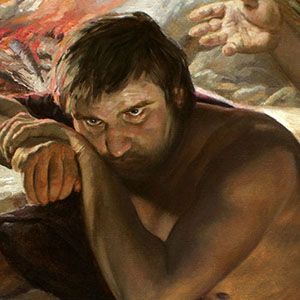
Why Cain Killed Abel
Hundreds of books have been written in an attempt to solve this mystery. But the answer is simple, straight forward and all the details are found in Scripture. So, let’s take a closer look at this question using Biblical Scripture to reach a factual answer.
The story starts with Cain’s parents. Adam and Eve were created without sin and lived in a garden of leisure. They were innocent but were they virtuous? To answer this question, God allowed Satan to enter the garden to test them. Satan made a simple statement to Eve. He told her that God had told them not to eat the fruit of the Tree of Knowledge because if they did, they too would be like God. Eve could not shake this idea from her mind. So, she eventually took the fruit and ate it. It was not a magical nor mystical fruit. It held no powers except it was the one and only fruit God had expressly told them not to eat or they would surely die. Eve had taken her God-given right of free will to make the decision to eat the fruit.

The first thing she noticed was that she did not drop dead. Therefore, she assumed that God had not been truthful with her. She then realized that she had always been capable of making her own decisions without the advice or intervention of God. She may have even looked at the distant steep mountain ranges surrounding the garden and wondered for the first time what lay beyond them. She then gave the fruit to Adam who also ate some. What was going through Adams’s mind is not revealed in Scripture. Maybe he wanted to be like God, or maybe he thought Eve would die and he would rather also die than live without her.
Adam and Eve now understood that they could have always done whatever they wanted, whenever they wanted the way they wanted. God was no longer an absolute necessity for their everyday life and they were excited to expand on this understanding. To die would be a small price to pay for having a lifetime of freedom to choose their own destiny. This freedom of expression and choice is fundamental to unconditional love, which is what God wants to give and receive from His creation. However, they apparently considered that what they had done was wrong in the eyes of God because they immediately covered themselves with leaves and hid when they heard Him calling for them. They believed that these acts literally would hide the fact that they had broken God’s one commandment. They definitely wanted the freedom brought about by knowledge, but they also did not want to upset their Creator.
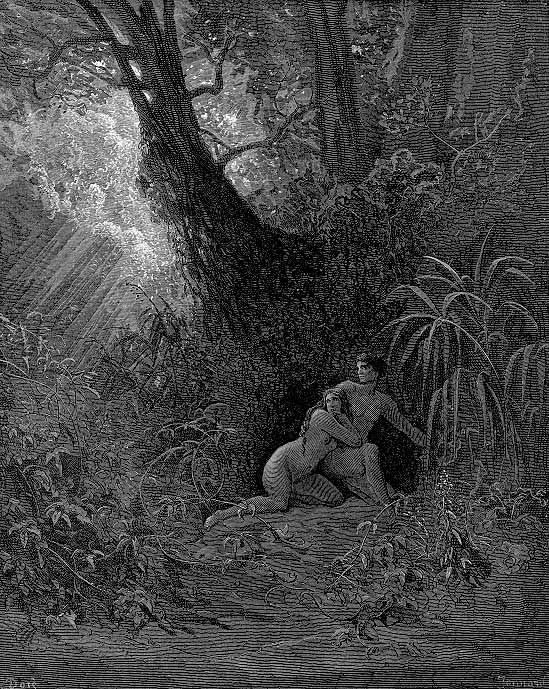
When God came to talk with them that afternoon, He found them hiding from Him behind a tree wearing coverings made from fig leaves (Genesis 3:7). Adam told God he hid from Him because he was scared and embarrassed that he was naked. God asked Adam who told him that he was naked, and if he had eaten the fruit from the Tree of Knowledge. Adam immediately told God that the woman He had made for him gave him the fruit, thus implying that the sin committed by him was her fault but ultimately God’s fault. Eve immediately pointed to the serpent, rationalizing that he had beguiled her. This would be the first lie recorded in Scripture. The serpent, looking around, realized he did not have a leg to stand on.

God pronounced a curse on Adam, Eve and the serpent. But He also put forth His initial plan of redemption in the form of a sacrificial ritual. While the fig leaf coverings they had hastily made were physical acts resulting from guilty consciences, they could not erase their spiritual sins, only cover them. Thus, the first God ordained sacrifice would temporarily solve two problems. First, God took one or possibly two animals and sacrificed them on behalf of Adam and Eve who were in attendance. The animal(s) shed their life blood to cover the couple’s rebellious and offensive sin against God. This was a symbolic act to show that the wages of sin are death, the grave and spiritual destruction, due to a separation from God (Genesis 3:21). Adam and Eve, as vegetarians, were no doubt horrified to see blood flowing from the animals, watch as their skins were removed and then smell the burning fat. But that was exactly the point God was trying to make. He wanted them to be familiar with the animals so that their deaths would cause them to feel the same sorrow and pain that He felt at their rebellion against Him. Sin was no small matter in the eyes of God, and it took the life of an innocent animal to cover or hide Adam and Eve’s sins. Performing the ritual, showed that the person had faith in God. And that faith would allow Him to intervene on their behalf and protect them from themselves and others in the years to come. The sacrifice of animals was never intended to bring forgiveness of sin but only to hide sin. And sacrificing was never intended to go on forever. It was always only a shadow or symbolic of the actual sacrifice of the coming Messiah. In the meantime, sacrificing allowed God to show mercy and grace towards those who showed their respect for Him. And they showed that respect by worshipping Him the way He wanted to be worshipped at that time.

God had originally intended to reward Adam, Eve and their descendants for their faithfulness and obedience by giving them eternal life through the use of the Tree of Life (Genesis 2:9). But now, they would eventually die and their spirits would be temporarily held in a place called Sheol until an appropriate atonement for their sins could be made. Sheol was a place located down in the Earth and had two containment areas. One for the spirits of the righteous, sometime known as Paradise and one for the sprits of the unrighteous (Luke 16:19-31). Those spirits deemed righteous by God through faith, would later be led by Christ from Sheol to Heaven the evening of His resurrection (Ephesians 4:8). Today, when a person of faith dies, their spirit is immediately with Christ (II Corinthians 5:1-8). Currently, Sheol only contains the spirits of the unrighteous and unrepentant awaiting judgement for their rebellion against God and the damage their actions have caused others.
God personally taught Adam and Eve the correct way to perform this sacrificial rite. It would always involve the sin free blood of an innocent animal with an accompanying spirit of love, respect and obedience for God by the worshipper. This love and respect for God would then show itself through acts of love and respect for their fellow man.

Eve eventually gave birth to twins named Cain and Abel. We know they were twins because whenever a woman is cited in Scripture as having given birth, the phrases she conceived and then gave birth is always used. In scripture, the word conceived always comes before the word birth. However, in Eve’s case, the word conceive is singular and scripture then states she had Cain and then Abel. Therefore two children from one conception or twins. Scripture does not state if they were identical or fraternal. But, the thought of Cain causing the first death by an act of fratricide involving his twin, makes this event all the more grotesque.
Adam and Eve are thought by some scholars to have been taught how to sacrifice by God while still in the Garden. Adam and Eve were also sacrificing before and after the birth of their twins. Adam told his twins of the creation story as it was told to him by God. He told them the reason for his fall from grace and the appropriate way to sacrifice in order to cover their sins. The sacrifice involved the entire family and they all knew the exact procedures as given to them by God. Once the boys matured, it was up to each of them to sacrifice their own animal. Cain was a farmer and Abel was a herder. They had no doubt been sacrificing animals for many years before their story is cited in the Book of Genesis. It was then that we read that Cain decided to make changes to the sacrificial procedure. Instead of sacrificing an animal, Cain decide to offer some of his crops. This offering was immediately and soundly rejected by God. Cain was apparently astounded that God would turn down his revised offer that came from the works of his own two hands. To better understand this situation, we need to take a closer look at Cain’s birth, up bringing and his relationship with God and his brother Abel.
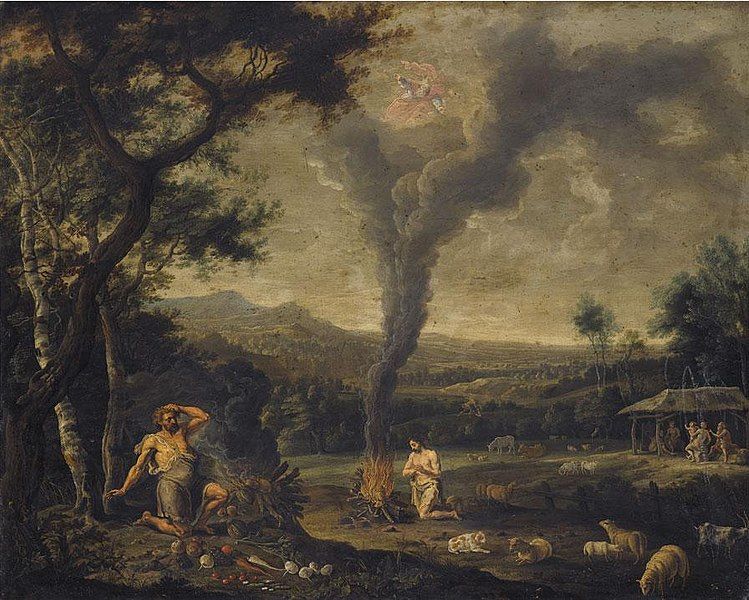
When God punished Adam and Eve for their transgressions against Him, He also gave them some positive news. He told them that, the Seed of the woman would crush the head of the serpent or Satan (Genesis 3:15). Adam heard this, Eve heard this and Satan heard this. All three thought Eve was obviously the woman in question as she was the only woman at this time. Thus, it would be her first born seed, or Cain, who would be their redemption and Satan’s downfall. All eyes and hopes were now on the two boys, but especially Cain as the first born. Adam and Eve no doubt saw Cain as a child that could do no wrong. Even though they were probably still destined to eventually experience death for their transgressions, their hard work in creating a community and colonizing the land of Eden would still be ruled by their first born. Cain no doubt got his way most of the time and was encouraged to make decisions and exercise his leadership skills. This gave him a sense of self-worth and entitlement. Even though they were twins, Cain was still over Abel as first born. They both got along as brothers but Cain was always in the lead. Cain grew crops and Abel raised livestock. The two job choices went hand in hand. But while both boys learned how to sacrifice at the same time from their father Adam, only Abel was sensitive to the fact that God was more interested in faith, respect, obedience and love than the sacrificial ritual itself. Thus, the sacrifice was always only an outward symbolic showing of an inward faith in God. God did not relish the sacrifice of bulls, sheep and goats. God has never derived pleasure from a blood sacrifice (Romans 10:8-10; Psalms 40:6). It has only ever been a way to force mankind to comprehend the tremendous offence of sin to a God of mercy and love. God much prefers for His creations to love and respect Him and their fellow man (Hosea 6:6; Amos 5:22-23; Jeremiah 7:22-24). And the way to show this is to have faith in His decision making and follow His commands or instructions. In this way, a person will live a long, full and happy existence and receive the promised reward of eternal life after death. Abel understood this and was a true believer and follower of God.
Cain, on the other hand, was an extremely proud man. He was proud of being first born. He was proud of the respect he received from his extended family. And he was proud of all he had accomplished as a successful farmer. He liked the fact that he was a self-reliant leader and did not need anyone’s help to supply his needs. Over the years, he came to the decision that he did not and should not be required to turn to his younger inferior brother for an animal sacrifice. Instead, he would provide his own sacrifice from the works of his own hands. He decided that a sacrifice of his crops would suffice the sacrificial needs of God. After all, the product of his hands was as valuable as the products of Abel’s hands. So, let the rest of his family sacrifice animals. He was now going to sacrifice his crops instead. Cain was also aware that the land was under God’s curse and growing crops was now difficult under these less-than-ideal circumstances (Genesis 3:17-18). Cain saw Abel simply herding his flocks from pasture to pasture and then resting in the shade by a brook as they grazed. So, for him to be willingly to give any of his hard-earned crops to a God that had put his land under a curse, was becoming untenable. Cain only saw the works of his hands being wasted on the act of the sacrifice. He did not understand that it was not only about the outward ritual, but the inward desire to please God. Also, it was a way to thank Him for showing grace and mercy in not punishing man the way he deserved for his sinful nature. Cain saw himself as the “seed of the women” that would bring redemption to his family, so why was he bowing and scraping at a sacrificial alter. Cain, like all sinners, was too proud to see the need to appease God by repenting of their sins. Cain had inherited his sin nature from Adam and thus was never the prophesied “Seed of the woman”, who would destroy sin, death the grave, and Sheol. That mission was for Jesus the Christ to undertake.
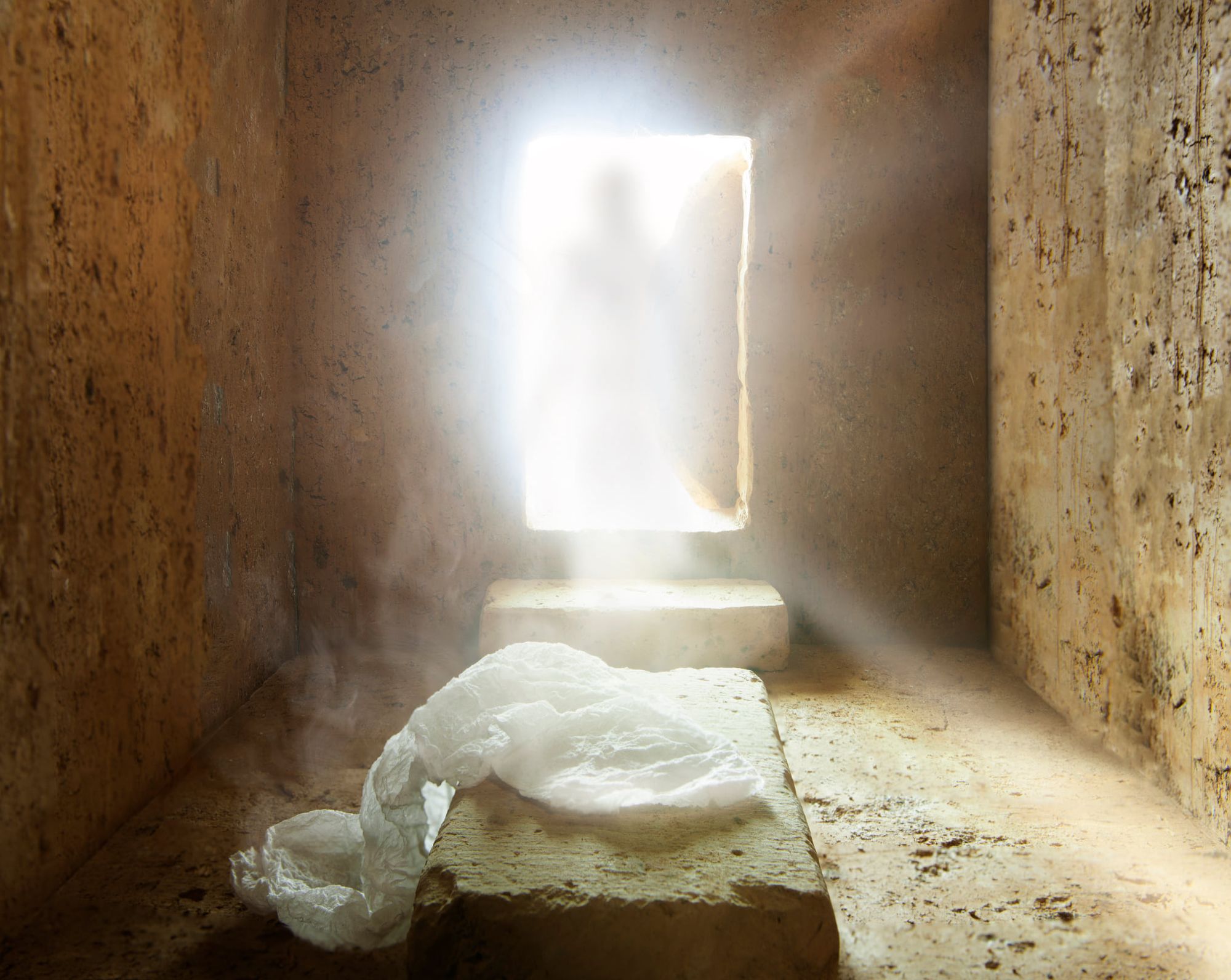
While God would later allow offerings of crops during the 3rd annual Jewish feast called the Feast of First Fruits, this ritual would come thousands of years in the future. This feast was also created by God to be symbolic of the actual resurrection of Christ on the 3rd day after He was sacrificed on Passover. Thus, Christ was the First Fruit of the resurrection (I Corinthians 15:20). But again, this was not an acceptable offering allowed at this time but would become a feast during the Jewish exodus from Egypt (Leviticus 6:14-15). The issue was actually not about the sacrifice, it was now about Cain getting his own way. This attitude of Cain had been growing inside him for many years. Scripture tells us that Abel did good works, but Cain at some point began to do works of evil (Genesis4:6-7; I John 3:12). Ultimately, Cain was not sensitive to the idea that a blood sacrifice was necessary for the gift of redemption from sin. He could not reconcile why the works of his hands could not earn him redemption. But the sacrificial system was a prophecy of the death of the Jewish Messiah. Thus, the sacrifice had to be followed to the letter if the Jewish race of God was to connect the symbolism to the actual event in 33 A.D. For Cain to go another way was to reject God’s future plan of salvation made before the foundations of the world. The blood sacrifice was only a symbol, but it was also a prophecy of a literal future event. And those that had faith in God and practiced this ritual would be deemed righteous and at their deaths, go to Sheol to await being released by Christ after His resurrection. Cain’s changing of this sacrifice was his first actual step towards rejecting God’s plan of salvation altogether. Cain was both shocked and enraged that any effort on his part concerning a sacrifice, would be judged lacking on the part of anyone, including God.
Cain’s sacrifice to God using some of his crop harvest was immediately and summarily rejected by God (Genesis 4:5). He was a respected farmer whose pride, joy and self-worth were inextricably tied up in the successful growing of his crops. Therefore, an offering of his crops made perfectly good sense to him. The rejection of his sacrifice by God hurt his pride in that to reject his crops was to reject him. His vanity was also wounded in that the rejection was made in public at the altar. Cain’s hurt pride quickly turned to anger. So, Abel’s sacrifice is now better than Cain’s sacrifice? Cain was the first born, so his offering should be respected for who he is and the work that went into his sacrifice. The fact that it was not an animal should not make a difference.
The Lord then tried to reason with Cain. First, He questioned why Cain felt he had the right to be mad (Genesis 4:6). He then told a sulking Cain that if he did what He had commanded of him out of love and obedience, he would have His respect just as Abel had His respect (Genesis 4:7). Literally, God told Cain that the correct sin offering would please Him. Meaning, take away the crop offerings, go back to your house and bring an animal offering. It may even have been that Abel, on his way to sacrifice his lamb had, as usual, tied up a second lamb by Cain’s door to use as his sacrifice. Figuratively, God was saying to Cain that if he continued in his rebellious ways against Him, sin or Satan the father of sin, lay crouched like a wild animal at his door and would rule over him. In other words, God was saying, you are starting down a wide path that will ultimately lead to your destruction so, stop now, reconsider your actions, change course and do the right thing. In fact the words, “If you do well, shall you not be accepted…” is translated in some Bibles as, “If you do well, is there not a lifting up…”. So, God is literally saying if you do as I have asked you to do, your sacrifice will find favor with Me and your feelings will be lifted up. But the phrase may also be saying prophetically, follow my ways and be spiritually lifted up from sin and resurrected up from death (Word English Bible, JPS Tanakh 1917, New Heart English Bible). Lastly, God told Cain that his lack of respect for Him showed in his offering. And, if this contrary attitude continued, it would eventually allow sin to overtake his life which would lead to death and separation from Him. Therefore, he could freely choose to take God’s invitation to bring the correct commanded sacrifice and cover his sins, or reject the offer, go his own way, die in his sins and receive the grave and condemnation as his reward. Ultimately, the choice was freely his to make (Genesis 4:7; I Peter 5:8).
Cain had been in a slow decline spiritually for some time. He no doubt saw that Abel’s flocks were flourishing and his righteous ways were attracting an increasing number of sibling admirers. While he on the other hand, struggled to reap a good crop and his stern ways were diminishing his popularity even though he was the first born and Adam’s heir apparent. Cain suffered from pride, entitlement and a lack of respect for God. Now suddenly his pride and vanity were wounded and the more he thought about this rejection the more enraged he became. He had been publicly humiliated and was experiencing sibling rivalry, because he was only allowed to sacrifice to God what Abel provided him. God saw the heart of Cain and that he had become a vain, proud, stubborn and arrogant man who, like his parents, was trying to be his own god. He had become totally focused on pleasing himself. There is an old saying that a man in anger rides a mad horse. Cain was now enraged and his mind became focused on his brother Abel and revenge.
We then read that Cain, having taken into account all that God told and warned him about, had weighed his options and made a conscious decision concerning a Plan A and a Plan B. He would put Plan A on the table for Abel’s consideration and depending on Abel’s reaction, he may or may not exercise Plan B. First Cain decided to meet with Abel away from their village in one of his grazing fields (Genesis 4:8). It was there Cain would have the privacy to approach Abel with a proposition and hopefully come to an amicable conclusion. However, should Abel be uncooperative, and argumentative, Cain could quickly resort to Plan B.
Cain had decided he would try to convince Abel to join him as his twin and double team God on the sacrifice issue. This way, if God still insisted on being worshipped His way, He would lose both Adam’s first-born son and Abel the son He apparently loved the best. Then the two of them together could start their own religion based on whatever or whoever they decided. They could even turn the ever-growing family of Adam towards a new and better religion based on the desires of man. In this way, created beings (6 the number of man) create their own man god in their own image (6) and worship the man god in their own way (6). This is the great lie of Satan who first spread it to the angels in Heaven then to Adam and now to Cain.
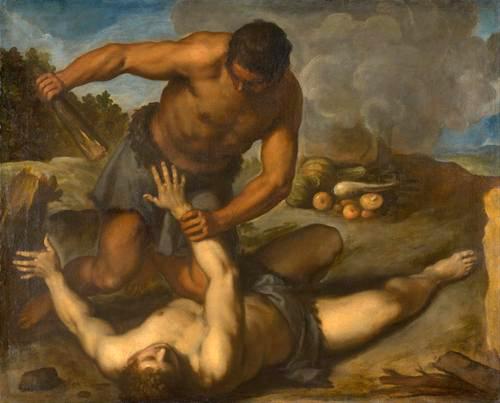
Abel apparently made it crystal clear that he wanted no part in Cain’s plan of rebellion. The debate quickly became a heated argument. Cain had been hurt by God so now Cain would strike back at God by hurting Abel. Cain hit Abel with a rock he quickly picked up, or perhaps stabbed him with a sharp harvesting tool. Abel fell to the ground and began to bleed out from the wound. Cain did not come to the aide of his brother but instead, left him on the ground to die. As far as Cain was concerned, Abel had his chance to join him but proved to be a traitor and got what he deserved for not supporting and following his older brother’s lead. Cain murdered Abel because Abel refused to be like him. He had been rejected by God and now he was rejected by his brother. Cain left the scene of the crime while Abel lay dying in the green grass of his own pasture surrounded by his flocks. The irony is, Cain refused to kill a sheep but was more than willing to kill his innocent twin brother by committing the first act of fratricide. Powerless against God, Cain took vengeance on His favorite follower. That was Cain's fault and that was his crime. Thus, Cain’s final rejection of God was his blood sacrifice to God consisting of his own twin brother Abel.
This brutal act showed that Cain was always of the flesh while Abel was of the spirit. Because Cain was the first born does not mean he deserved the spiritual blessing. The Bible recounts many stories in which the first born was not worthy of the spiritual blessing as they were more concerned about the worldly things of the flesh rather than the spiritual things of God. For example, Abraham had Ishmael his first born by way of his wife’s Egyptian slave girl and Isaac by way of his wife Sarah. God personally told Abraham that while He would ensure that Ishmael would establish a great nation, the spiritual blessing was to be given to Isaac. Isaac had twin sons named Esau and Jacob. Esau was first born but his mind was only on the ways of the flesh. He famously sold his spiritual blessing to Jacob for a bowl of soup. That’s right, he sold it for a bowl of soup because his flesh was hungry. Jacob fathered 12 sons from which came the 12 tribes of Israel. Sadly, his first 3 eldest sons were each unfaithful to him (Genesis 49:3-7). Thus, the spiritual blessing went to his 4th born son Judah. So, Scripture plainly shows that, as it was in the case of Cain and Abel, the first-born male is not always worthy of the spiritual blessing. Abel would eventually be replaced by another son of Adam named Seth, who justly received the spiritual blessing and was in the direct lineage of Jesus.
Abel must have said a prayer as he lay dying from a mortal wound. God would have heard the dying prayer as one of His faithful followers, and would have been aware when Abel’s spirit became the first to enter into Sheol, the Land of the Dead. God immediately found and spoke with Cain. He first asked Cain, “Where is Abel your brother?” He specifically used the name Abel as the twins now had hundreds of siblings, nieces and nephews. Cain immediately answered with the lie, “I don’t know,” Cain had now murdered his brother and lied straight face to God. In the long silence, Cain then added, “Am I my brother’s keeper?” (Genesis 4:9). A far as God is concerned, people are to be concerned about their fellow man. And, anyone who murders another does in fact kill his brother because we are all children in the family of God. God then simply asks Cain, “What have you done?” Still no answer from Cain who is through talking about this incident. God then said, “The voice of your brother’s blood cries out to Me from the ground.” (Genesis 4:10). By faith, Abel offered a sacrifice unto his God, and because he was considered righteous by God, even in death God kept his spirit alive and heard him from the depths of Sheol (Hebrews 11:4). Cain remained silent. As far as he was concerned, what’s done is done. The first murderer in the world was Satan when he deceived Adam and Eve into believing they could be as gods, but instead they eventually died (John 8:44). Cain, the world’s second murderer, wanted to be his own god and for others to follow him. The final war on Earth, called Armageddon, will be about only one issue, who will mankind choose to follow and worship. Will they follow God their Creator, or a one world leader known as the Antichrist (Revelation 13:4). Interestingly, the Antichrist is not anti-religion, he is anti-Christ the one true religion of God.
Cain did not suddenly turn into an unrighteous person. This change in demeanor had probably been developing for years. Cain had begun to imagine a series of evil thoughts. Thoughts that had turned into a plan that he put into action to bring about the results he wanted to see (I John 3:12). Cain would not accept a master servant relationship with God. He would not accept that he was his brother keeper. Instead, he wanted to be seen as a leader, worthy of respect and perhaps worship. He believed that it was every man for himself and only the strong survive. Those that succeed have earned the right to a life of prosperity, including the reward of an afterlife through the successful works of their hands. God had become an inconvenient obstacle to the ideas and plans of Cain.
Cain’s sin was the same as Satan’s. They both started with pride in themselves that turned into a need for praise. Lucifer was in a ranking of angels know as the Morning Stars. He was the most perfect, beautiful and powerful of all God’s angelic creations. His position as the Covering Angel was the highest rank of all the angelic host. He was allowed to walk through the fire of the Holy Spirit that surrounds the Throne of God and present to the Godhead the praise and worship of all creation (Ezekiel 28:14). But at some point in eternity and out of pride, Satan decided that he too was deserving of praise. God read his heart and immediately cast him from Heaven along with all those angels that believed as he did. Thus, sin and death began with pride in the heart of Satan. And the sinful desire to be as gods caused Adam and Eve to sin. And now Cain, because of his pride in who he was and what he had accomplished, caused him to sin. In fact, the sin of all people still originates in the pride of one’s self.
Cain had come to believe that he did not owe God anything as he was a self-made man. Therefore, anything he offered was merit based and not faith based. He thought he could easily turn his back on God and cause his family to support and follow him. He could then bend God’s will to his will, or he and his followers would sacrifice to a god that was more in line with their wants and needs. A god that was less demanding and more understanding, like a man. In fact, why not just follow and worship a man who, as a benevolent dictator has all the power and a kind heart for his people. What could be more natural than men essentially worshiping themselves by worshiping a world leader. This would be the basis of the rise and fall of every dictator from the mighty Nimrod to the last dictator of the world known as the Antichrist, or simply, the Beast.

God has now tried Cain for his heinous crime against his innocent brother. He now pronounces him guilty of the crime of murder and sentences him. To be guilty of sin in the eyes of God is to know when something is wrong but then knowingly and willfully deciding to do it anyway. This is exactly what Satan freely chose to do. This is what Cain’s father Adam freely chose to do and this is what Cain also freely chose to do. God showed compassion and did not strike Cain dead. The law concerning capital punishment would not be imposed until after Noah left the ark (Genesis 9:6). The Mosaic Law of an eye for an eye was also not in effect until the giving of the Law on Mount Sinai (Exodus 21:23-27). God wanted to give Cain a second chance at redemption. God would allow Cain to live, but not among his family members in the land of Eden. He would exile him and put off his death sentence in the hope that he would come to repent of his sins and turn back to God. We have seen many famous people use their popularity and wealth to avoid prison for their crimes against humanity. But God has time on His side and will wait patiently until that person repents of their sins or dies in their sins. It is then that they will receive their just rewards one way or the other. Cain also knew that to murder anyone was against the will of God. Even the lost tribes in the Amazon basin that have never had contact with anyone outside of their villages instinctively know that to unjustly kill a person is wrong. It is one of many moral concepts that God has genetically hardwired into the cognitive predisposition of the human race (Romans 1:20; 2:14-15).
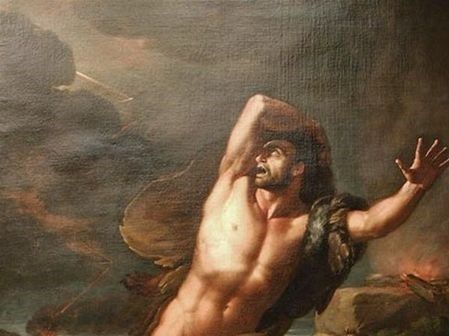
God tells Cain that he is now double cursed. The first curse had been inherited by him according to the original sin of his father Adam. Now God tells Cain that he is cursed from the earth, because he has forced the ground to drink or absorb Abel’s innocent blood due to his unwarranted act of violence. God tells Cain that when he tries to farm the land, the land will not allow a crop to grow. Cain had polluted the land with blood and the land in return would resist his efforts to produce life sustaining sustenance for himself (Genesis 4:10-12). He also told Cain that he would be a “fugitive” meaning he would be noted for his crime of murder. This term literally meant he would be in danger of being killed in revenge for the crime he had committed. It figuratively meant that mankind would never feel safe with a murderer in its community. And prophetically it meant that Cain would pay a price for murdering his brother if he did not repent of his sin and return to the will of God. His crime would make him a “vagabond” always moving from place to place in order to find safety from others. Who these other people were is not cited in scripture. If ever there was a time for Cain to plead his case to God, repent of his grievous sin and ask for forgiveness, it was now.
But instead, he does not ask to be forgiven, because he is not sorry for what he has done. In his mind, it was Abel’s fault that he had to kill him. Cain instead said to the Lord that the punishment He gave him was more than he could bare. God would literally be driving him from one place to the next endlessly because now, wherever he went, he would not be able to raise a crop and someone would try to kill him (Genesis 4:13-14). Cain continued complaining and said, “and from Your face or presence I shall hide”, meaning I will seem to disappear in Your eyes and You, in return, will turn Your back on me. But this act on Your part is not fair as You will no longer afford me protection from others who will try to kill me as a murder on the run from justice.
First, Cain was hoping that God would reconsider his offer to sacrifice whatever he felt like sacrificing. He now knew this was not going to happen. He then thought God might forgive him as first born for killing his brother. He now knew this also was not going to happen. He may have possibly thought that God could and would resurrect Able. He now saw that this was too was not going to happen. So he focuses on the best severance package he can get for himself. For God to turn His back on him was not the end of the world. This was a possible outcome of his planned actions all along. But he did not expect to lose his rights as first born, his lands that he had cleared and cultivated, to be exiled out of his home county and to be ostracized from his family for the rest of his life. And as if all of this was not enough, now wherever he traveled, the land where he plants a crop will not yield a harvest! But the thought of completely losing the protection that God had once afforded him was going way too far. After all, he was now a convicted murderer on the run from God, his family and exiled to a foreign land. This is why he says, “… and it will come to pass that everyone who finds me no matter where I go will try to kill me.” (Genesis 4:15).

At first glance, God seemingly shows mercy on Cain by pronouncing a curse, “… whoever kills Cain, vengeance shall be taken on him sevenfold.” (Genesis 4:15) But the question is, who is the him God is referring to. Is it Cain’s killer or Cain at his death or both? Then the Lord put a mark on Cain so that anyone who found him would not kill him for vengeance, fame or a bounty (Genesis 4:15). The mark was most probably on Cain’s forehead so as to be easily seen. This is the same location the antichrist will put his mark on his followers (Revelation 13:16). Cain then turns his back on God. He leaves his family and the land of Eden heading East into the land of wandering or exile known as Nod (Genesis :16-17).
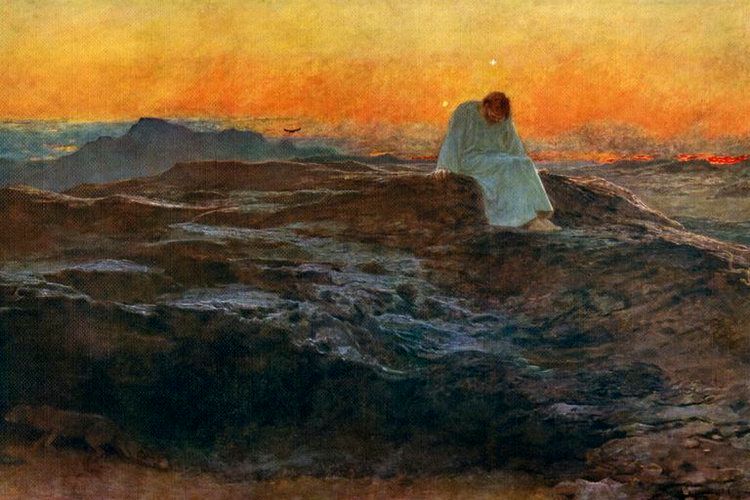
The land of Nod would be the Bible’s first City of Refuge, a place where a person who commits a crime can escape to in order not be immediately killed in revenge by a family member (Numbers 35:15). The accused, in this case Cain, could remain there unharmed until a court could be convened to calmly adjudicate the case. God as judge tried Cain and found him guilty of premeditated murder.
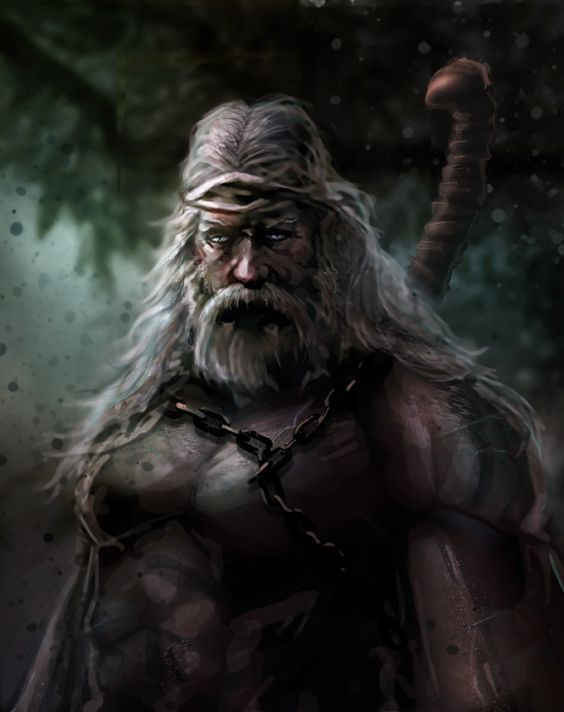
God then showed Cain mercy by exiling him to the Land of Nod. God allowed Cain to live safely and prosper in the land. His hope was that Cain would, upon reflection, admit his crime, repent of this grievous sin and ask for forgiveness. But instead, Cain showed no remorse, continued to sin and established a pagan empire that would ultimately become the greatest nemesis of God’s chosen people. Cain’s probation period came to an end with his 7th generation of offspring. Seven is the biblical number for completion. At that time, Cain was allowed to be executed by an Avenger of Blood who was usually the nearest male relative of the murdered person (Numbers 35:19). In this case it was Cain’s great-great- great grandson Lamech. It was at that time that Cain received his just rewards as an unrepentant murder and a man who turned his back on God.
Related Paper:

If you enjoy the information provided on this site, please consider making a donation of any amount to help continue its production. Donate Now
